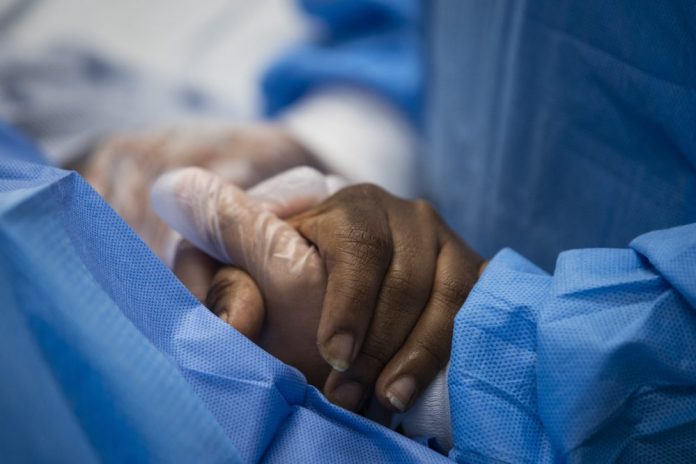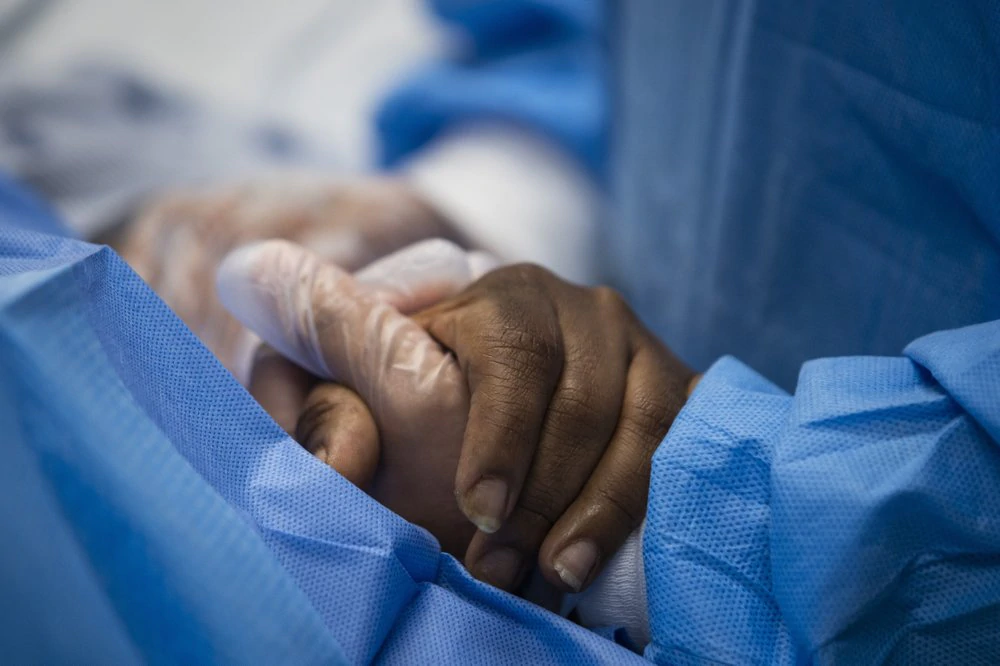[ad_1]

Registered nurses are professionals that care for, educate and advise patients and their families about healthcare. These American heroes — often unseen and unheard, burdened with student debt — have become the lynchpin for the COVID-19 response and a crucial element in the health and safety of our community.
READ MORE: Coronavirus front lines: A New York City nurse details life in a pandemic
In layman’s terms, we need nurses just as much as we need firefighters, paramedics, and members of our armed services — professionals that have their training subsidized or entirely covered by the government. While hard to imagine now, in post-coronavirus America, we should respect, cherish and uplift our registered nurses. That starts with providing free nursing education programs in every state and forgiving the student loan debt of all nurses on the frontline.
Since the beginning of the novel coronavirus pandemic, more than 5,000 nurses, doctors, and related hospital personnel in the United States have contracted COVID-19, and dozens have died from it. Early numbers have shown just how much of a toll this pandemic is taking on the members of our nation’s healthcare community — many of whom have been forced to treat sick patients without adequate personal protective gear.

We need nurses in our hospitals, doctor’s offices, and ambulatory care centers. Sadly, there aren’t enough of them. With tens of thousands of nursing positions going unfilled each year, the United States, by all measures, seems to be caught in the middle of a prolonged nursing shortage that has been brought to the forefront by COVID-19.
It was birthed out of the lack of clinical education settings needed to train the 150,000 students that nursing schools turn out each year. An aging nursing school faculty has compounded this situation.
This shortage should be breaking news, but sadly, mainstream media and our elected officials seem to be coming up short on an issue that deserves national attention. For many, this shortage, skyrocketing student loan debt for currently employed nurses, and the lack of investment in our national nursing infrastructure aren’t serious matters. However, for communities that look and love like me, the lack of caring nurses could be a matter of life and death during this pandemic and for decades to come.
With healthcare costs on the rise, and relentless attacks on the Affordable Care Act in Washington, D.C. and state capitals throughout the country, the health and wellness of our community has been taken for granted — with one caveat. The registered nurses that live, work (on the clock or voluntarily), and worship among us, are some of the most trusted and accessible caregivers in our community, whether it be for the expectant mother, the neighbor recovering from cancer, or the church brother who has diabetes.

Nearly five decades ago, my recently retired mother, then a registered nurse, graduated from nursing school at Jamaica’s Kingston Public Hospital. Unlike the United States today, Jamaica back then provided nursing education almost free to eligible students. As a result of this action, the small island nation not only produced thousands of nurses that currently work in U.S. hospitals, but it has averted the nursing shortage that has and continues to plague America’s now beleaguered healthcare system.
READ MORE: Texas nurse creates face masks that protect against COVID-19 better than N-95 model
We often think about Jamaica and other developing countries as behind the United States when it comes to policy and progress, but this time around, we can learn from them. As we approach the recovery period of this pandemic, our nation requires radical reform that can reinflate our economy and shore-up our besieged healthcare system. That reform should include a massive investment in nursing education, including:
- more funding for nursing schools
- free or reduced tuition for nursing students
- forgiveness of nursing educational student loans
- funds for our HBCUs and community colleges to establish and maintain nursing education programs
- dedicated funding to train, educate, and graduate more nurse educators and faculty members
Growing up, my mother would always repeat this powerful Jamaican proverb, “Today for you, tomorrow for me,” and she was right! If we want high-quality nurses caring for us tomorrow, we must invest in them today.
COVID-19 has brought into sharp focus the critical role that nurses play in the health and safety of our communities and nation at-large. Now is the opportunity to show reverence to these healers by investing in their education, forgiving their student loan debt, and valuing their role as essential to our well-being.

Richard Fowler is the youngest syndicated progressive and/or African-American radio host in the United States. Fowler is a Fox News Contributor, Chairman of the Center, Black Equity Leadership Council and a Senior Fellow at the New Leaders Council. Follow him on Instagram and Twitter, @Richardafowler.
[ad_2]
Source link

